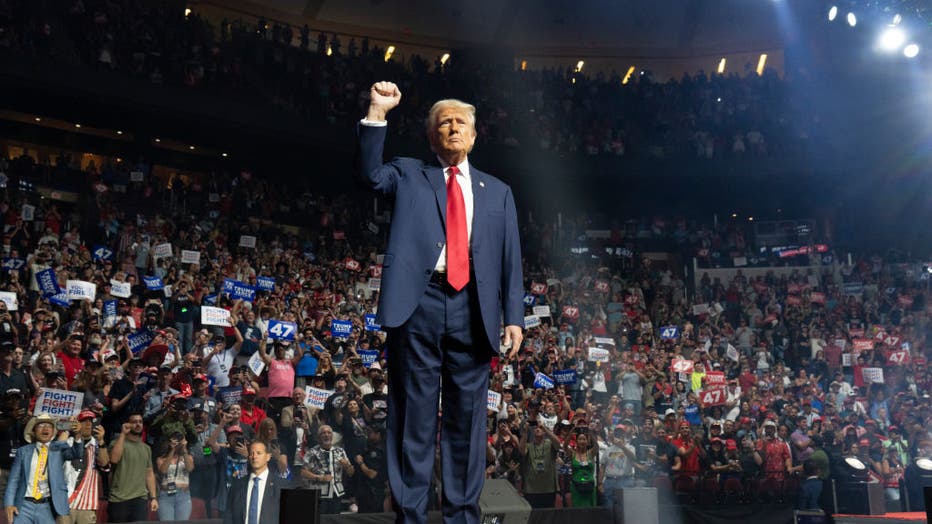Here's why candidates like Trump can use artists' songs at rallies, even if they object
Swedish supergroup ABBA recently demanded that Donald Trump stop using their music at his campaign rallies, highlighting a common conflict between artists and political campaigns.
Despite ABBA’s objections, Trump’s campaign claims it has the proper licenses to legally play their songs. This incident is part of a broader pattern where artists have objected to the use of their music in political contexts, raising questions about the legal and ethical implications of such uses.
Why can candidates use songs at rallies without artists' permission?
Political candidates can use songs at rallies without the artist's direct permission because of blanket licenses. These licenses are issued by performing rights organizations (PROs) like ASCAP and BMI and grant broad permissions for the public performance of songs from their catalogs.
When a campaign or event venue obtains such a license, they are legally allowed to play any song covered by the license, including at political events.
How do PROs obtain the rights to songs?
Artists like ABBA allow PROs to manage their music rights by signing an agreement that gives the PRO the authority to license their songs for public performance. This agreement ensures that the artist receives royalties whenever their music is played publicly, whether on the radio, in venues, or at events like rallies.
While artists may foresee situations where they would object to their songs being used—such as at a political rally—they often rely on PROs to handle the complex task of tracking and collecting royalties. Without a PRO, artists would have to manage these rights themselves, which can be impractical.

Republican presidential nominee, former U.S. President Donald Trump departs the stage after speaking during a campaign rally at Desert Diamond Arena on August 23, 2024 in Glendale, Arizona. (Photo by Rebecca Noble/Getty Images)
Examples of artists objecting to the use of their songs
Over the years, many artists from various genres have voiced their disapproval of their music being used by political campaigns. Some notable examples include:
- Bruce Springsteen - In 1984, Ronald Reagan’s campaign used Springsteen’s "Born in the U.S.A." without permission, despite the song's critical tone. Springsteen objected to its use, making headlines.
- Adele - In 2016, Adele requested that Donald Trump stop using her songs "Rolling in the Deep" and "Skyfall" at his rallies, stating that she had not given permission.
- The Rolling Stones - In 2020, The Rolling Stones threatened legal action to prevent Trump from using their hit "You Can't Always Get What You Want" at his rallies. The band previously objected in 2016.
- R.E.M. - The band objected to the use of their song "It's the End of the World as We Know It" at Trump’s rallies, with frontman Michael Stipe calling for their music not to be used in political contexts.
- Tom Petty - The late musician’s estate issued a cease-and-desist letter to Trump’s campaign in 2020, demanding that his song "I Won't Back Down" not be used at rallies.
- Sam Moore - In 2008, soul singer Sam Moore of Sam & Dave asked Barack Obama's campaign to stop using the song "Hold On, I'm Comin'" at rallies.
- The Silversun Pickups - In 2012, The Silversun Pickups sent a cease-and-desist letter to the Mitt Romney campaign, but also objected to Joe Biden using their song "Panic Switch" during his campaign.

